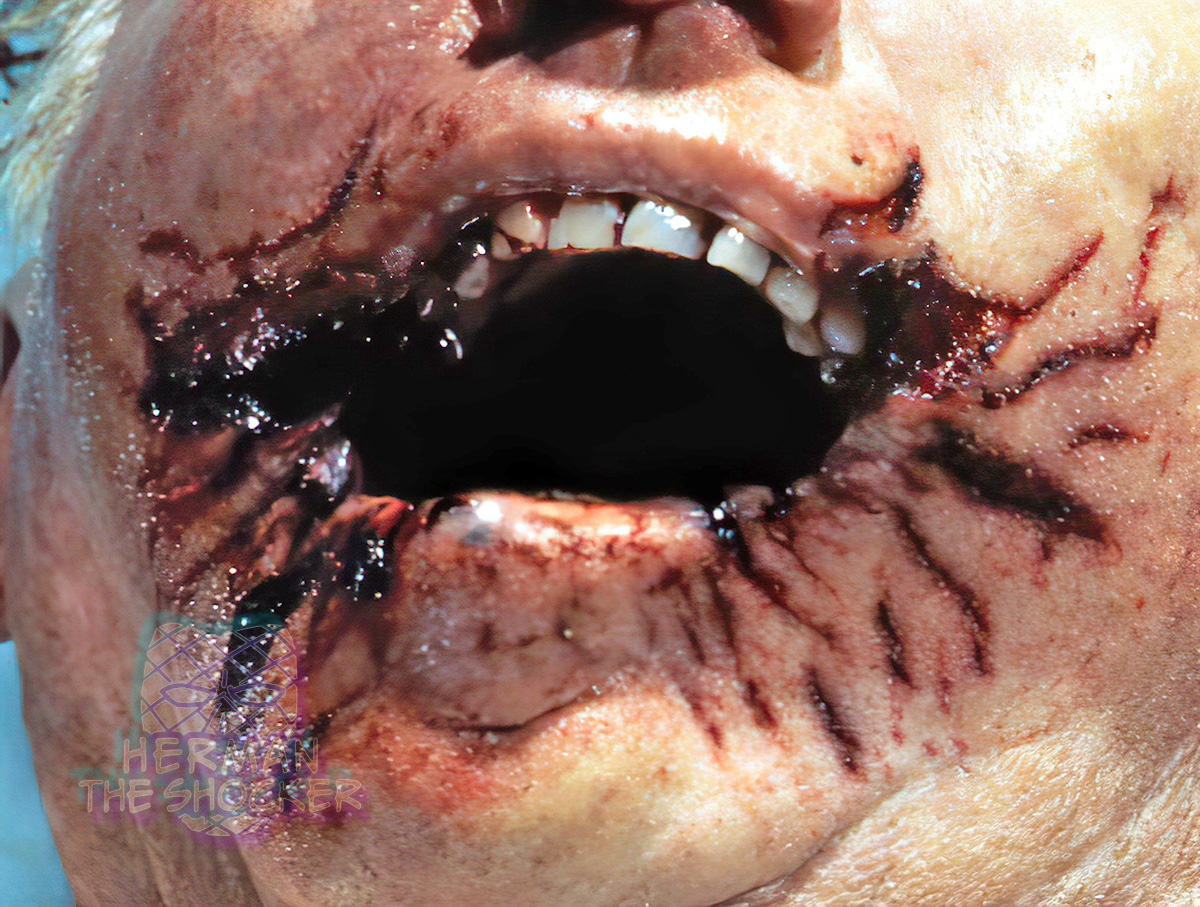In these intraoral gunshot wounds, note the tissue tears extending from the sides of the mouth. These tears result from the large amount of gases exiting the end of the barrel at high pressures. In contrast to the head, contact shotgun wounds of the torso often have a fairly innocuous appearance, likely related to the elastic nature of the tissues of the body walls and the ability of the chest or abdominal cavities to be able to accommodate a large amount of expelled gas.
The discharge of a weapon involves the release not only of a projectile but of hot gas under high pressure as well. If the lips are sealed around the barrel, the rapid expansion of departed gases causes the cheeks and face to balloon far beyond their elastic capacity. This results in the characteristic tears seen in the figures.
In a contact shot fired anywhere on the head, the gases from the firing discharge can enter into the skull. This results in an acute build-up of intracranial pressure with the rigid cranium attempting to accommodate it by expansion. Gases under pressure accumulate inside the cranium and in the process of attempting to release this build-up of pressure, fractures will arise with outward expansion with outwards pushing of the fracture fragments and consent tears (lacerations) through the skin of the face as these sharp and tough bony fragments are pushed outwards. This is seen especially on the face and this produces facial distortion effects.
Latest posts
















